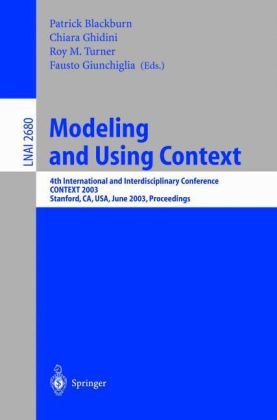

Most ebook files are in PDF format, so you can easily read them using various software such as Foxit Reader or directly on the Google Chrome browser.
Some ebook files are released by publishers in other formats such as .awz, .mobi, .epub, .fb2, etc. You may need to install specific software to read these formats on mobile/PC, such as Calibre.
Please read the tutorial at this link: https://ebookbell.com/faq
We offer FREE conversion to the popular formats you request; however, this may take some time. Therefore, right after payment, please email us, and we will try to provide the service as quickly as possible.
For some exceptional file formats or broken links (if any), please refrain from opening any disputes. Instead, email us first, and we will try to assist within a maximum of 6 hours.
EbookBell Team

0.0
0 reviewsWhetheryouareacomputerscientist,alogician,aphilosopher,orapsychologist, it is crucial to understand the role that context and contextual information plays in reasoning and representation. The conference at which the papers in this volume were presented was the fourth in an international series devoted to research on context, and was held in Stanford (USA) on June 23–25, 2003. The ?rst conference in the series was held in Rio de Janeiro (Brazil) in 1997, the second was held in Trento (Italy) in 1999, and the third was held in Dundee (Scotland, UK) in 2001. CONTEXT2003 brought together representative work from many di?erent ?elds: in this volume you will ?nd philosophical theorizing, logical formalization, computationalmodelling—and,indeed,computationalapplications—together with work that approaches context from a more cognitive orientation. While we don’t believe that this volume can capture the lively ?avor of discussion of the conference itself, we do hope that researchers interested in context (in any of its many manifestations) will ?nd something of interest here, perhaps something that will inspire new lines of work. We are very grateful to our invited speakers: Patrick Br´ ezillon (University of Paris VI, France), Keith Devlin (CSLI, Stanford), and David Leake (Indiana University, USA) for presenting three important contemporary perspectives on the study on context.